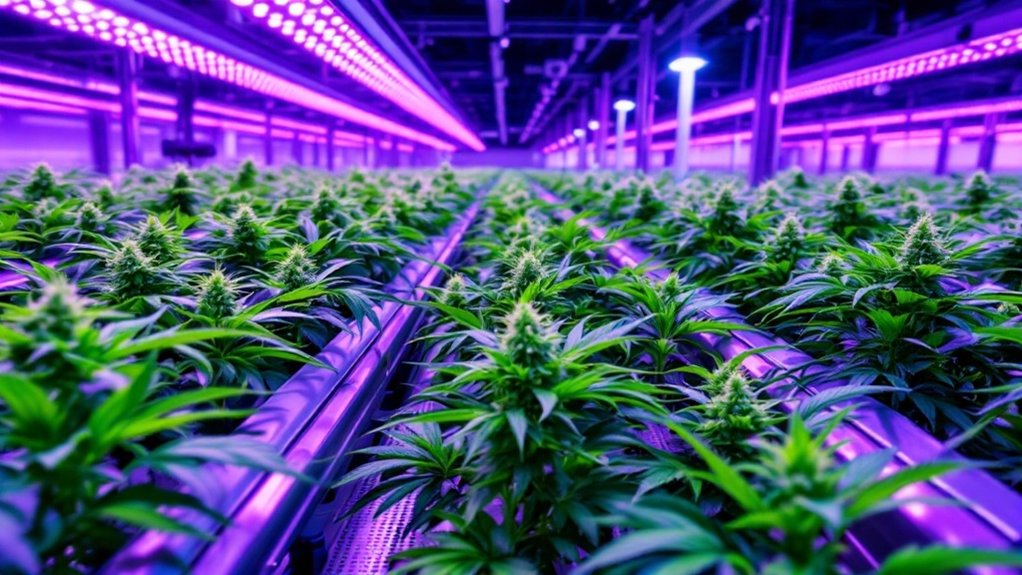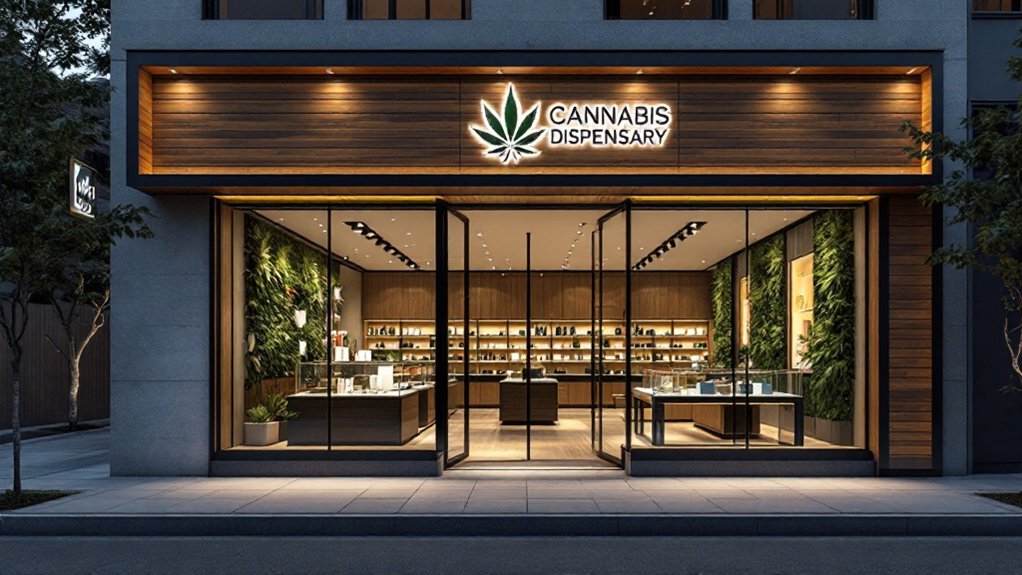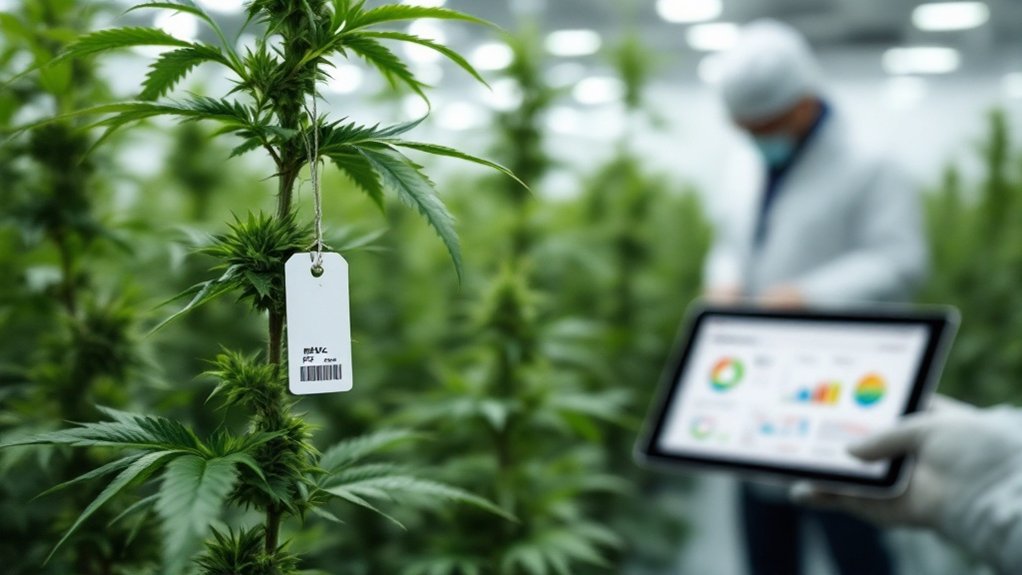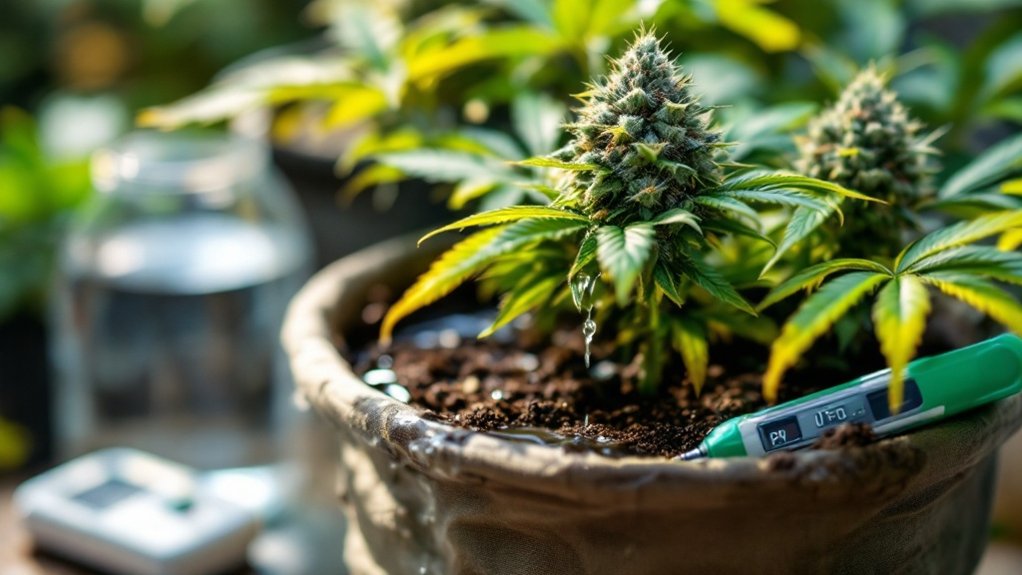Seed to sale software has become essential for cannabis retailers maneuvering the complex industry landscape. As the U.S. market approaches $35.2 billion by 2025, these systems streamline inventory tracking, guarantee regulatory compliance across varied state jurisdictions, and provide valuable consumer insights. The technology helps businesses adapt to shifting demographics, with Millennials holding 46.2% market share and Gen Z showing rapid growth. Effective implementation supports operational efficiency during the industry’s consolidation phase, positioning retailers for sustainable growth in this emerging space.
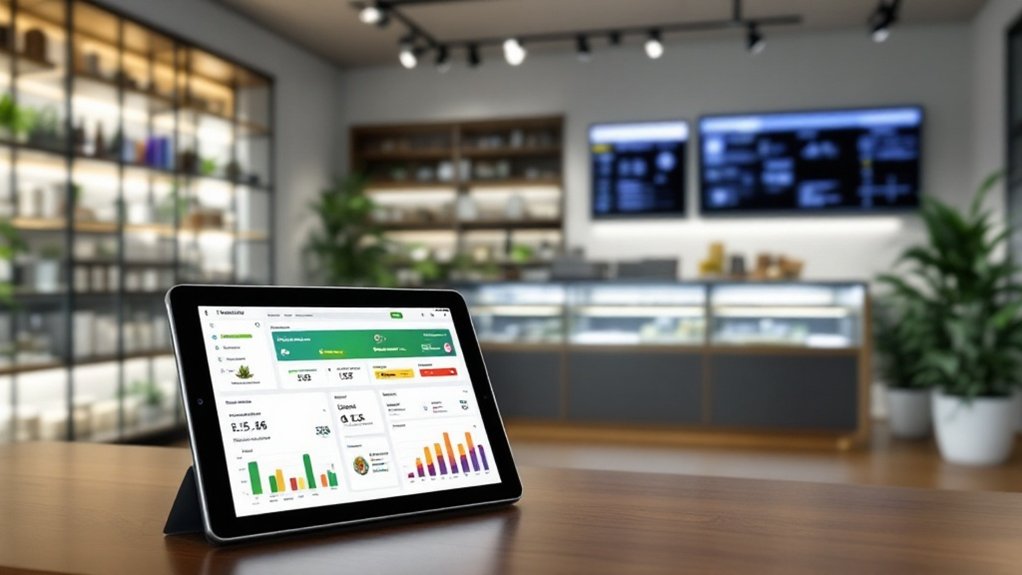
As the U.S. cannabis industry continues its robust expansion toward a projected $35.2 billion in sales by 2025, retailers across the country are maneuvering through complex market dynamics to secure their position in this rapidly evolving landscape. The market shows consistent growth patterns, with forecasts indicating sales could reach approximately $39 billion by 2025, eventually climbing to $67.2 billion in 2030 and $87.0 billion by 2035. This trajectory underscores the critical importance of operational efficiency and compliance management for cannabis retailers seeking long-term viability.
The U.S. cannabis market’s expansion demands retailers navigate complex dynamics while prioritizing operational efficiency and compliance to ensure sustainability.
Consumer demographics reveal significant trends that influence retail strategy. Millennials currently dominate with 46.2% of market share, while Gen Z represents the fastest-growing segment with an 11.3% year-over-year increase. Together, these younger consumers account for 62.8% of all U.S. cannabis sales. Their purchasing preferences differ significantly from older generations, with younger buyers showing stronger interest in vapor pens while more mature consumers tend to favor traditional flower products. Public support has reached record high levels, with 88% of Americans now favoring legalization and only 11% opposing it.
The product landscape continues to diversify, with beverages emerging as a significant category despite holding just 0.9% dollar share of all cannabis sales. This segment generated $54.6 million in Q1 2025 with 15% year-over-year growth. Within the edibles category, beverages represent 6% of sales, ranking fourth behind candy (79%), chocolates (6%), and pills (5%). The beverage category itself is dominated by drinks at 78%, followed by shots and powdered mixes. Traditional smoking methods are seeing a decline as consumers increasingly prefer alternative consumption methods like edibles, tinctures, and beverages for their discretion and ease of use.
Market consolidation trends are reshaping the competitive environment. The number of beverage brands decreased from 148 in 2024 to 117 in Q1 2025, while the top 10 brands now control 64% of category sales, up from 52% a year prior. This consolidation reflects broader industry trends toward larger operational footprints, with 61 brands operating across multiple states and 56 spanning multiple product categories.
Regulatory compliance remains a fundamental concern for cannabis retailers. State-specific regulations govern everything from product types to advertising practices, with substantial tax revenues flowing to state budgets.
New York’s plan to double licensed dispensaries in 2025 exemplifies the ongoing expansion of regulated markets, with projections exceeding $1.5 billion in sales. Florida’s expected $3.2 billion in 2025 sales positions it as the second-largest market behind California, highlighting the geographic diversity of cannabis retail opportunities across the United States.
Frequently Asked Questions
How Much Does Cannabis Seed-To-Sale Software Typically Cost?
Cannabis seed-to-sale software typically costs around $1,000 per month as a baseline, though prices vary considerably.
Factors influencing costs include operation size, compliance requirements, and deployment methods (cloud vs. on-premises).
Most vendors use subscription-based pricing with tiered structures based on business scale and needed features.
Additional expenses often include implementation fees, technical support, and third-party integrations.
Enterprise-level solutions for multi-state operators may require custom pricing arrangements.
Is Seed-To-Sale Software Mandatory for All Cannabis Retailers?
Seed-to-sale software is mandatory for cannabis retailers in most regulated jurisdictions across the United States.
States like New York, Georgia, and Massachusetts have explicit requirements that licensees implement approved tracking systems capable of integration with state monitoring platforms.
Regulatory frameworks typically mandate these systems to prevent diversion to illegal markets, guarantee consumer safety, and maintain product quality standards.
Non-compliance with tracking requirements can result in citations, fines, and potentially license revocation depending on the severity of violations.
How Long Does Implementation of Seed-To-Sale Software Take?
Implementation of seed-to-sale software typically takes 2-6 months, depending on business complexity and scale.
The process involves initial assessment and planning (2-4 weeks), system configuration (1-2 months), data migration (2-4 weeks), staff training (2-3 weeks), and system testing (1-2 weeks).
Most states have established deadlines throughout 2025, with implementation timelines staggered by license type.
Proper implementation requires coordination with regulatory agencies to guarantee alignment with compliance requirements.
Can Seed-To-Sale Software Integrate With Existing POS Systems?
Yes, seed-to-sale software is designed to integrate with existing POS systems.
Most leading platforms feature API support or direct partnerships with popular POS providers, enabling seamless data transfer between cultivation, inventory management, and retail sales components.
This integration automates the synchronization of sales, inventory levels, and compliance data across all business functions, reducing manual entry and human error.
The unified data environment improves regulatory compliance tracking while supporting real-time reporting for more efficient business operations.
What Security Measures Protect Customer Data in Seed-To-Sale Platforms?
Seed-to-sale platforms protect customer data through multiple security layers.
End-to-end encryption safeguards information both in transit and at rest, while SSL/TLS protocols secure network communications.
Multi-factor authentication and role-based access controls restrict system access to authorized personnel only.
Regular security audits, real-time monitoring, and third-party penetration testing identify vulnerabilities before they can be exploited.
Additionally, these platforms implement data segmentation to isolate sensitive customer information from broader system access.

